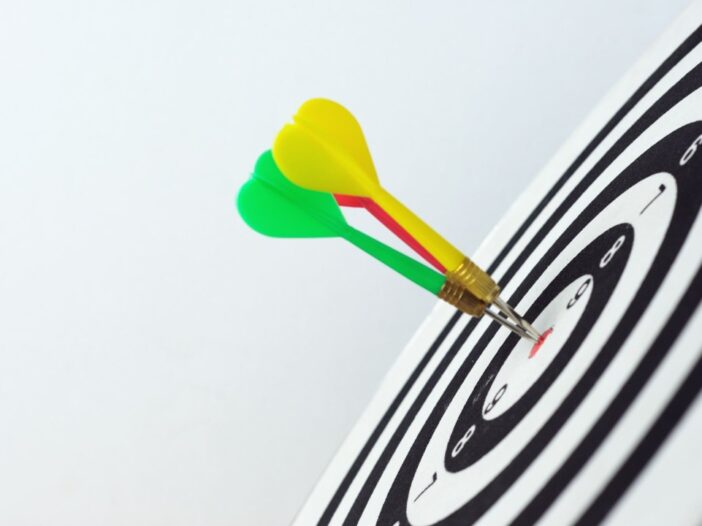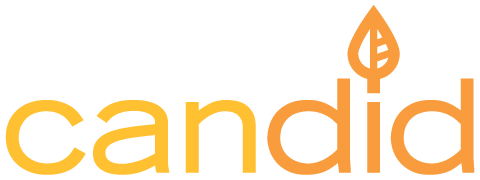
3, 33, or 75?
New year. New semester. Time for new goals, right? It’s pretty common to hear that New Year’s Resolutions have fallen out of favor. Truth be told, they don’t really work. We start with our resolve and a healthy dose of enthusiasm to do something positive or stop something negative, only to see that enthusiasm and resolve falter in a matter of days or weeks.
Even so, you still hear a lot about the importance of setting goals plays in self development and growth. But sometimes goals feel a lot like resolutions, so we aren’t sure that setting them is worth the effort. In this blog I want to give you a few ideas about how you can move your own achievement needle from 3% likelihood of success to closer to 75% likelihood for success. How does that sound?
3% Likely to Succeed
Most of us fall in this category. Studies show that people who hold a goal in their mind and only in their mind (even if they repeat it to themselves, even if they carry it around all year!) are only 3% likely to achieve that goal. Said another way, we are not likely to succeed if our goals stay 100% in our heads.
33% Likely to Succeed
However, if we do one simple thing, the likelihood of success can increase 11 fold. That one thing? Write your goal down. Writing down your goal moves the goal from internal to external, where it takes on new power and reality outside of your head. In fact, if you write it down (or capture it in an image like a vision board) and then place it somewhere you can see it multiple times a day, your chances improve even more. By more frequently seeing it outside of yourself it takes on a new power and reality for you. Even though going from 3 in 100 chance to a 1 in 3 chance is a HUGE improvement, there is something even more powerful you can do if you want to make a change in your life.
75% Likely to Succeed
The key to personal growth and developing new habits and reaching goals, it turns out, has to do with getting support and accountability. 75% of the people who have a goal, write it down and refer to it, and then make an agreement to check in with someone on their progress is the most likely to achieve that goal.
Accountability can come in all sorts of ways. You can find a workout buddy to go to the gym with, or a study buddy… You can be part of a group that shares what steps you will do that week to move closer to your goals, and if you don’t do it, you agree on some price to pay. One group I knew had to put money into a pot to donate to a charity. Another group agreed if you didn’t hit your weekly target someone in the group would break one of your golf clubs! OK, so maybe breaking things isn’t necessary, but you can make it a challenge to meet with someone else.
How Do You Want to Feel?
A totally different approach is to start with how you want to feel as your overall goal. Choose a positive, life affirming feeling. When a student asked me last week what my goals were for this year, I was a bit chagrined to realize I hadn’t gotten very clear about it myself. So on Friday while I was walking my dog I thought about this question: by the end of the year how would I like to feel? The answer did eventually crystallize for me. It’s a feeling that encompasses a lot of areas of my life and includes a lot of goals I’ve half heartedly held for a long time. The answer for me:
By the end of 2025 I want to feel lighter.
I want to feel physically lighter. I want to feel lighter in terms of the stuff I have in my house! I want to feel emotionally and spiritually lighter and more full of joy. I’d like to feel my financial debt is lighter. So now, with that in mind, I can check in with myself and ask, “Are my actions and choices aligning with my desire to feel lighter? Are they moving me closer to my goal?”
Once you’ve identified how you want to feel and linked that feeling with specific things that you could do to move in that direction–for example, feeling physically lighter might involve more movement and more mindful eating habits; feeling lighter in terms of my environment/home might mean going through the boxes in my basement one box a week to choose what to keep and what to let go of; feeling lighter in terms of finances might mean prioritizing paying down my credit card debt, and so on. Now I have concrete actionable steps that I can share with others to stay accountable to those goals.
Focus on One Thing
In addition to asking yourself how you want to feel, writing it down, and sharing it with others, one other key to making progress toward your goals is to focus on one thing at a time. Don’t try to do it all at once. For me, I’d need to choose which area of “lighter” feels like the most important one to start with? Exercise? Boxes? Debt? Make a decision and focus on that. It doesn’t mean you can’t work on all the areas in some way, but prioritize one area as the most important to track and to stay accountable.
Track Your Progress
Tracking can be an important tool so you keep momentum and motivation over time. When you face a setback, if you’ve kept track of where you started and where you’ve come, you are less likely to give up altogether if you have an off day or week.
Recap
Step 1: Identify a feeling/how you’d like to feel by the end of 2025 that would be life giving.
Step 2: Write it down as a positive aspiration or goal. (See my example above.)
Step 3: Identify what actions would support that feeling and move you closer to your goal.
Step 4: Focus on one area to prioritize.
Step 5: Find an accountability partner or group to share what your goal for yourself is.
Step 6: Track your progress and report it to your partner/group.
Step 7: Celebrate your success along the way. Progress. Not perfection.
Want to get started? Fill out this One Big Rock questionnaire to write down the feeling, area and next specific step. You can also identify how to track your success and who your accountability buddy can be.
I hope you have a wonderful semester. Feel free to check out Candid for upcoming events and opportunities to share your goals, identify steps you can take toward achieving those goals, and find others who can support you and help keep you on track.
Ginger Morgan, PhD
Director of Candid
Director of Candid — Health and Life Coach
